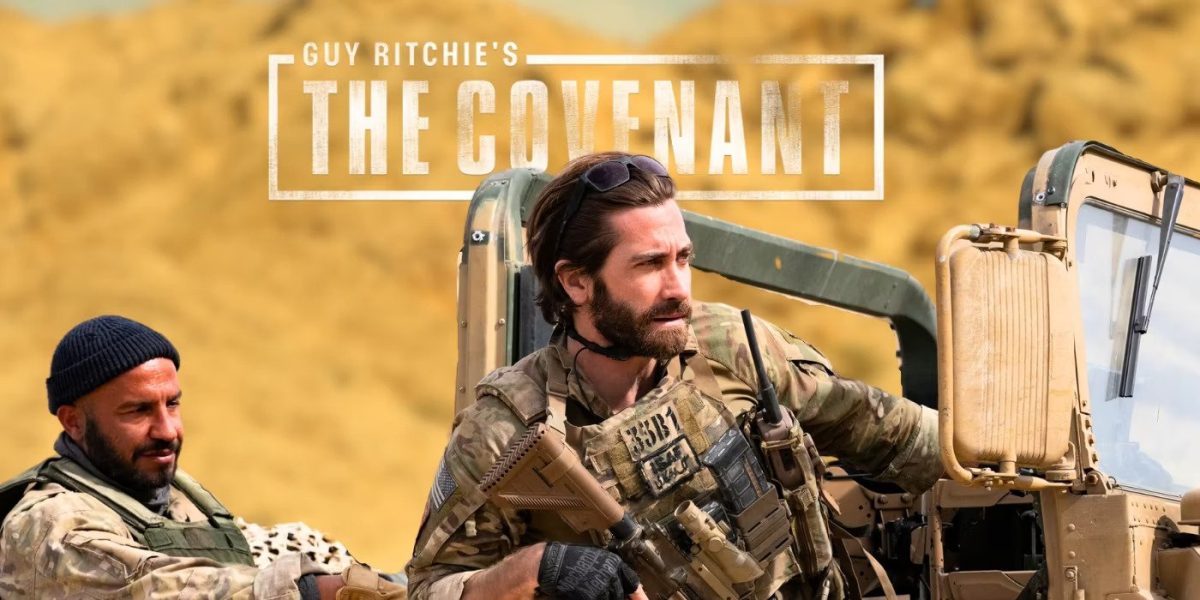With a mouthful of a name, Guy Ritchie’s The Covenant is Guy Ritchie’s latest feature film. I’m unsure as to why he chose to include himself in the title of the film, perhaps to distinguish itself from the 2007 thriller of the same name—but being director, co-writer and co-producer, he definitely deserves to have the honor.
It stars two strong lead actors, Jake Gyllenhaal and Dar Salim, who play their respective roles of Master Sergeant John Kinley and an interpreter named Ahmed Abdullah remarkably well. Gyllenhaal takes a minute to settle into his groove, but when he does—the defiant and courageous character of John Kinley comes alive.
Kinley and Abullah’s relationship forms following the death of Kinley’s platoon’s previous interpreter to an IED. Abdullah needs money for his wife and unborn child, so he takes the open position for their sake. This need for cash, however, is not the only reason he works with the Americans—Abdullah has his own history with the Taliban, one that drives him to get justice.
Despite Kinley’s consistent skepticism of Abdullah, he proves to be a very valuable addition to the group. This proves especially true when the platoon’s raid on an IED factory turns disastrous, forcing Kinley and Abdullah to escape on foot.
After Kinley is wounded in battle, he has to be dragged by Abullah through a no-man’s-land of Taliban insurgents and rugged terrain. By any means necessary, Abdullah fights to keep the injured Kinley alive and honor the code he swore to when joining their team.
Following Kinley’s awakening in an American hospital, his honor drives him to return the favor of saving his life for Abdullah and his family. Upon hearing about their lack of visas and situation in underground hiding, Kinley takes action. Following hours of endless bureaucratic nightmare on the phone and online, he decides to simply take matters into his own hands.
The Covenant feels very different from the rest of what Guy has produced in the past. It’s very real. Overblown action scenes and impossible feats are traded for a very human feel—by avoiding being overly sentimental, the emotions displayed illustrate a lifelike reaction to stress and overwhelming situations.
While The Covenant is certainly not a political movie, it has some important messages to say regarding topics like endless government cycles, the way our nation treats veterans and unfulfilled promises towards our allies. The reality of the movie’s plot—the United State’s failure to provide visas for our interpreters left in Afghanistan—still has an ongoing impact today. The film isn’t afraid to ask the audience questions while still providing an engaging and fun watch.
